Resource Checkout
Overview
CAT offers free, short-term checkout of educational technologies and books from our teaching and learning library. Any Santa Fe College employee is welcome to request our resources using the link below. Please note that these resources are not for student use.

Equipment We Checkout:
Digital Voice Recorder
A digital video recorder allows you to easily record meetings or classes, or to transcribe
notes.
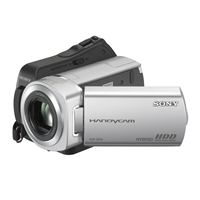
![]()

Books We Offer:
Classroom Assessment Techniques: A Handbook for College Teachers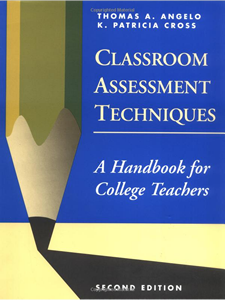 Creating Significant Learning Experiences: An Integrated Approach to
Creating Significant Learning Experiences: An Integrated Approach to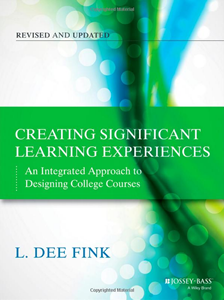 Designing College CoursesA Guide to Faculty Development
Designing College CoursesA Guide to Faculty Development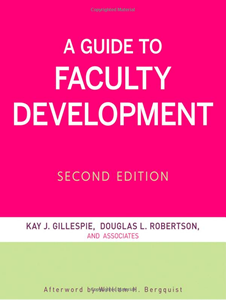 Social Media for Educators: Strategies and Best Practices
Social Media for Educators: Strategies and Best Practices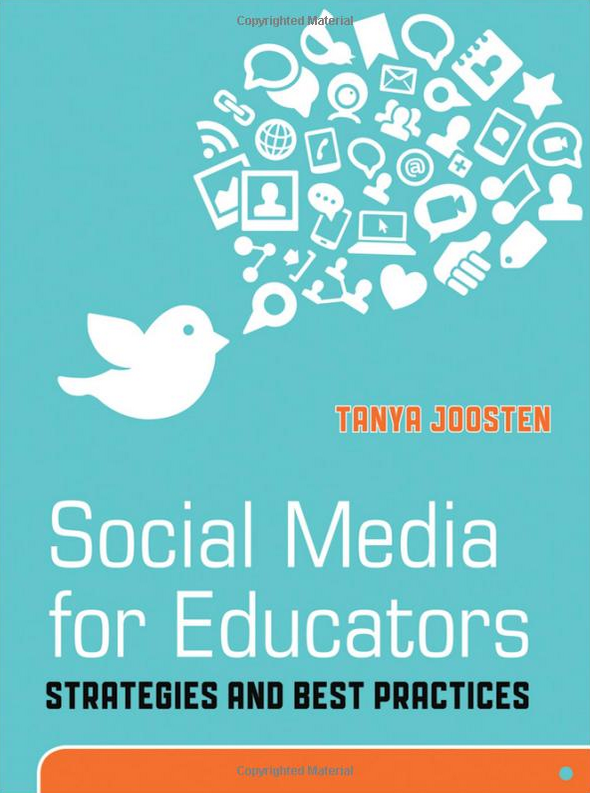
- Increase communication and interactivity in a course.
- Facilitate engaging learning activities.
- Enhance students' satisfaction, learning, and performance.
Student Engagement Techniques: A Handbook for College Faculty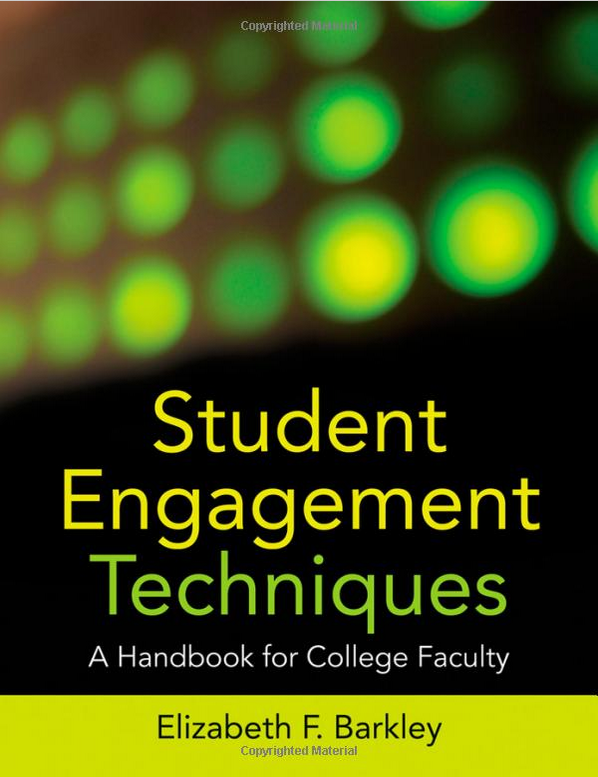 ePortfolios for Lifelong Learning and Assessment
ePortfolios for Lifelong Learning and Assessment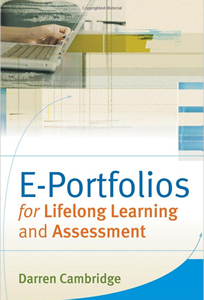 A Guide to Online Course Design: Strategies for Student Success
A Guide to Online Course Design: Strategies for Student Success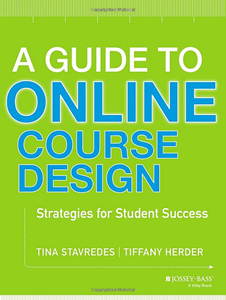 Excellent Online Teaching: Effective Strategies For A Successful Semester Online
Excellent Online Teaching: Effective Strategies For A Successful Semester Online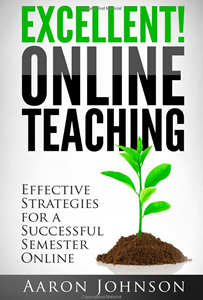 Promoting Active Learning: Strategies for the College Classroom
Promoting Active Learning: Strategies for the College Classroom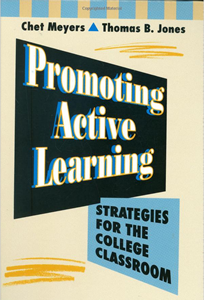 The Excellent Online Instructor: Strategies for Professional Development
The Excellent Online Instructor: Strategies for Professional Development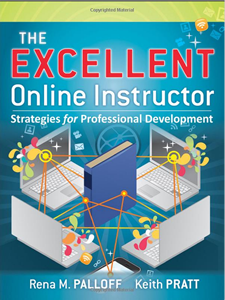
- Includes models based in adult learning principles and best practices.
- Offers guidelines to test instructors' readiness to teach online.
- Contains ideas for overcoming faculty resistance.
- Reveals how to develop an effective mentoring program.
- Shows how to establish a long-term faculty development effort.
Cooperative Learning in Higher Education: Across the Disciplines, Across the Academy
(New 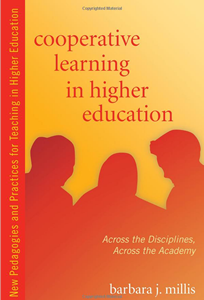 Pedagogies and Practices for Teaching in Higher Education) (2010) by Barbara Millis (Editor), James Rhem (Foreword)
Pedagogies and Practices for Teaching in Higher Education) (2010) by Barbara Millis (Editor), James Rhem (Foreword)
Experienced users of cooperative learning demonstrate how they use it in settings
as varied as a developmental mathematics course at a community college, and graduate
courses in history and the sciences, and how it works in small and large classes,
as well as in hybrid and online environments. The authors describe the application
of cooperative learning in biology, economics, educational psychology, financial accounting,
general chemistry, and literature at remedial, introductory, and graduate levels.
Teaching at Its Best: A Research-Based Resource for College Instructors (2010) by Linda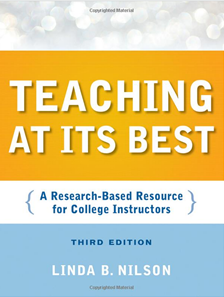 B. Nilson (Author)
B. Nilson (Author)
This third edition of the best-selling handbook offers faculty at all levels an essential
toolbox of hundreds of practical teaching techniques, formats, classroom activities,
and exercises, all of which can be implemented immediately. This thoroughly revised
edition includes the newest portrait of the Millennial student; current research from
cognitive psychology; a focus on outcomes maps; the latest legal options on copyright
issues; and how to best use new technology including wikis, blogs, podcasts, vodcasts,
and clickers. Entirely new chapters include subjects such as matching teaching methods
with learning outcomes, inquiry-guided learning, and using visuals to teach, and new
sections address Felder and Silverman's Index of Learning Styles, SCALE-UP classrooms,
multiple true-false test items, and much more.
What the Best College Teachers Do (2004) by Ken Bain (Author)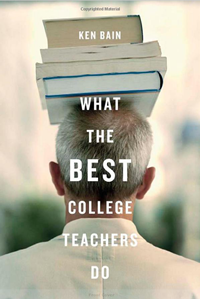
What makes a great teacher great? Who are the professors students remember long after
graduation? This book, the conclusion of a fifteen-year study of nearly one hundred
college teachers in a wide variety of fields and universities, offers valuable answers
for all educators.
The short answer is—it's not what teachers do, it's what they understand. Lesson plans
and lecture notes matter less than the special way teachers comprehend the subject
and value human learning. Whether historians or physicists, in El Paso or St. Paul,
the best teachers know their subjects inside and out--but they also know how to engage
and challenge students and to provoke impassioned responses. Most of all, they believe
two things fervently: that teaching matters and that students can learn.
The Courage to Teach: Exploring the Inner Landscape of a Teacher's Life, (2007)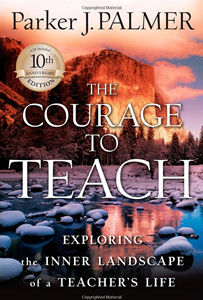
The Courage to Teach builds on a simple premise: good teaching cannot be reduced to
technique but is rooted in the identity and integrity of the teacher. Good teaching
takes myriad forms but good teachers share one trait: they are authentically present
in the classroom, deeply connected with their students and their subject. These connections
are held in the teacher's heart—the place where intellect, emotion, spirit, and converge
in the human self. Good teachers weave a life-giving web between themselves, their
subjects, and their students, helping their students learn how to weave a world for
themselves.
How Learning Works: Seven Research-Based Principles for Smart Teaching (2010) by Susan A. Ambrose (Author), Michael W. Bridges (Author), Michele DiPietro
(Author), Marsha C. 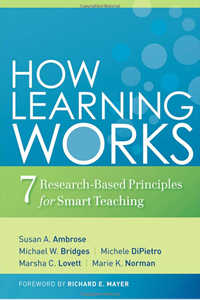 Lovett (Author), Marie K. Norman (Author)
Lovett (Author), Marie K. Norman (Author)
In this volume, the authors introduce seven general principles of learning, distilled
from the research literature as well as from twenty-seven years of experience working
one-on-one with college faculty. They have drawn on research from a breadth of perspectives
(cognitive, developmental, and social psychology; educational research; anthropology;
demographics; and organizational behavior) to identify a set of key principles underlying
learning-from how effective organization enhances retrieval and use of information
to what impacts motivation. These principles provide instructors with an understanding
of student learning that can help them see why certain teaching approaches are or
are not supporting student learning, generate or refine teaching approaches and strategies
that more effectively foster student learning in specific contexts, and transfer and
apply these principles to new courses.
For anyone who wants to improve his or her students' learning, it is crucial to understand
how that learning works and how to best foster it. This vital resource is grounded
in learning theory and based on research evidence, while being easy to understand
and apply to college teaching.
Engaging Students through Social Media: Evidence-Based Practices for Use in Student
Affairs (2014) by Reynol Junco (Author)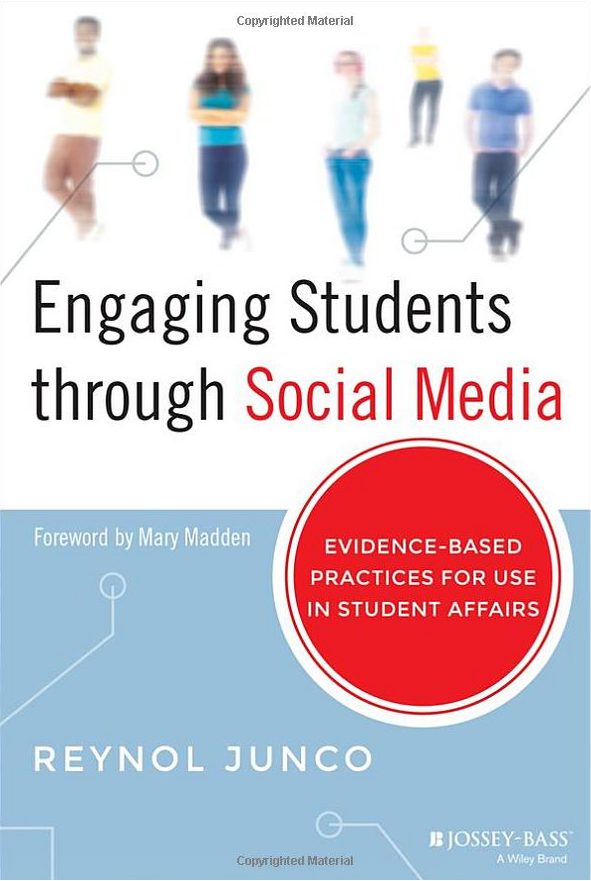
Engaging Students through Social Media outlines a research-based and practical plan
for implementing effective social media strategies within higher education settings.
This groundbreaking book reveals how social media is already being used in effective
ways across disciplines and how it can best be used to meet the goals of student affairs
professionals.
As the author explains, the benefits of social media engagement include a wealth of
positive outcomes such as improvements in critical thinking skills, content knowledge,
diversity appreciation, interpersonal skills, leadership skills, community engagement,
and student persistence. Based on Junco's extensive research and that of established
scholars in the field, the book dispels commonly held myths about the effects of social
media on students and explores how to successfully integrate social media into both
formal and informal learning environments, offering evidence-based practices that
can be applied to any educator's curricular development process.
Made to Stick: Why Some Ideas Survive and Others Die (2007) by Chip Heath (Author), 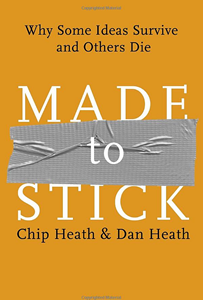 Dan Heath (Author)
Dan Heath (Author)
Why do some ideas thrive while others die? And how do we improve the chances of worthy
ideas? In Made to Stick, accomplished educators and idea collectors Chip and Dan Heath
tackle head-on these vexing questions. Inside, the brothers Heath reveal the anatomy
of ideas that stick and explain ways to make ideas stickier, such as applying the
“human scale principle,” using the “Velcro Theory of Memory,” and creating “curiosity
gaps.”
In this indispensable guide, we discover that sticky messages of all kinds–from the
infamous “kidney theft ring” hoax to a coach's lessons on sportsmanship to a vision
for a new product at Sony–draw their power from the same six traits.
Designing Group-work: Strategies for the Heterogeneous Classroom, (2014) by Elizabeth G.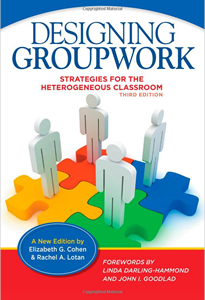 Cohen (Author), Rachel A. Lotan (Author)
Cohen (Author), Rachel A. Lotan (Author)
As teachers today work in ever more challenging contexts, group-work remains a particularly
effective pedagogical strategy. Based on years of research and teaching experience,
the new edition of this popular book features significant updates on the successful
use of cooperative learning to build equitable classrooms. Designing Group-work, Third
Edition incorporates current research findings with new material on what makes for
a group-worthy task, and shows how group-work contributes to growth and development
in the language of instruction. Responding to new curriculum standards and assessments
across all grade levels and subject areas, this edition shows teachers how to organize
their classroom so that all students participate actively. This valuable and sensible
resource is essential reading for educators at both the elementary and secondary levels,
for teachers in training, and for anyone working in the field of education.
Adding Some TEC-VARIETY: 100+ Activities for Motivating and Retaining Learners Online 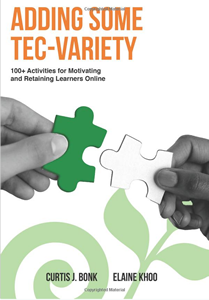 (2014)
(2014)
At this very moment, tens of millions of learners around the planet are navigating
through seemingly endless pages of their online courses. Unfortunately, most of these
learners are swimming in this sea of content without much hope for interaction, collaboration,
or engagement. The emergence of massive open online courses or MOOCs with tens, or
even hundreds, of thousands of learners in a single course has made the present situation
even more prominent and precarious. We propose the TEC-VARIETY framework as a solution
to the lack of meaningful engagement. It can shift learners from highly comatose states
to extremely engaged ones. Adding some TEC-VARIETY helps instructors to focus on how
to motivate online learners and increase learner retention. It also is a comprehensive,
one stop toolkit for online instructors to inspire learners and renew their own passion
for teaching. Using ten theoretically-driven and proven motivational principles, TEC-VARIETY
offers over a 100 practical yet innovative ideas based on decades of author experience
teaching in a variety of educational settings.